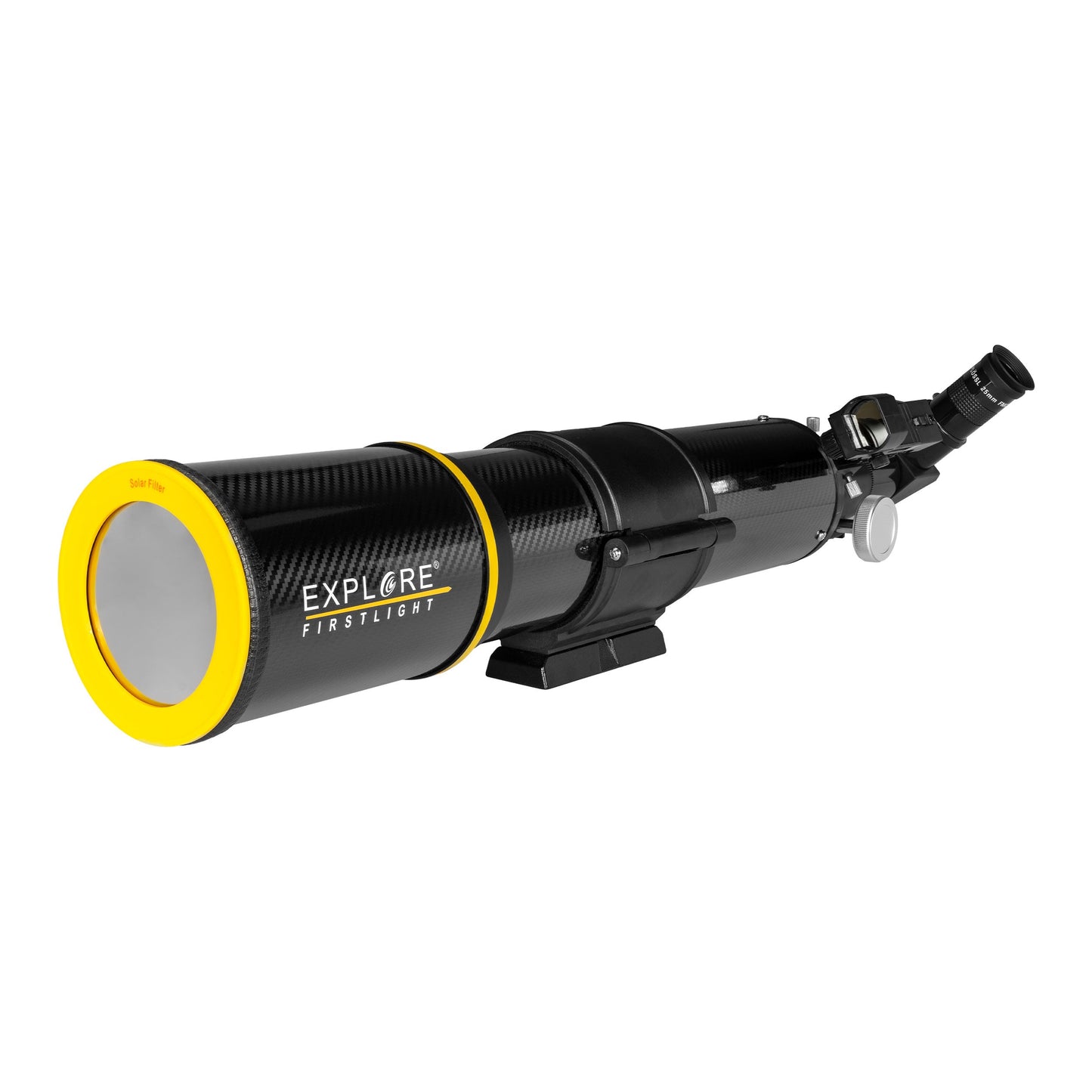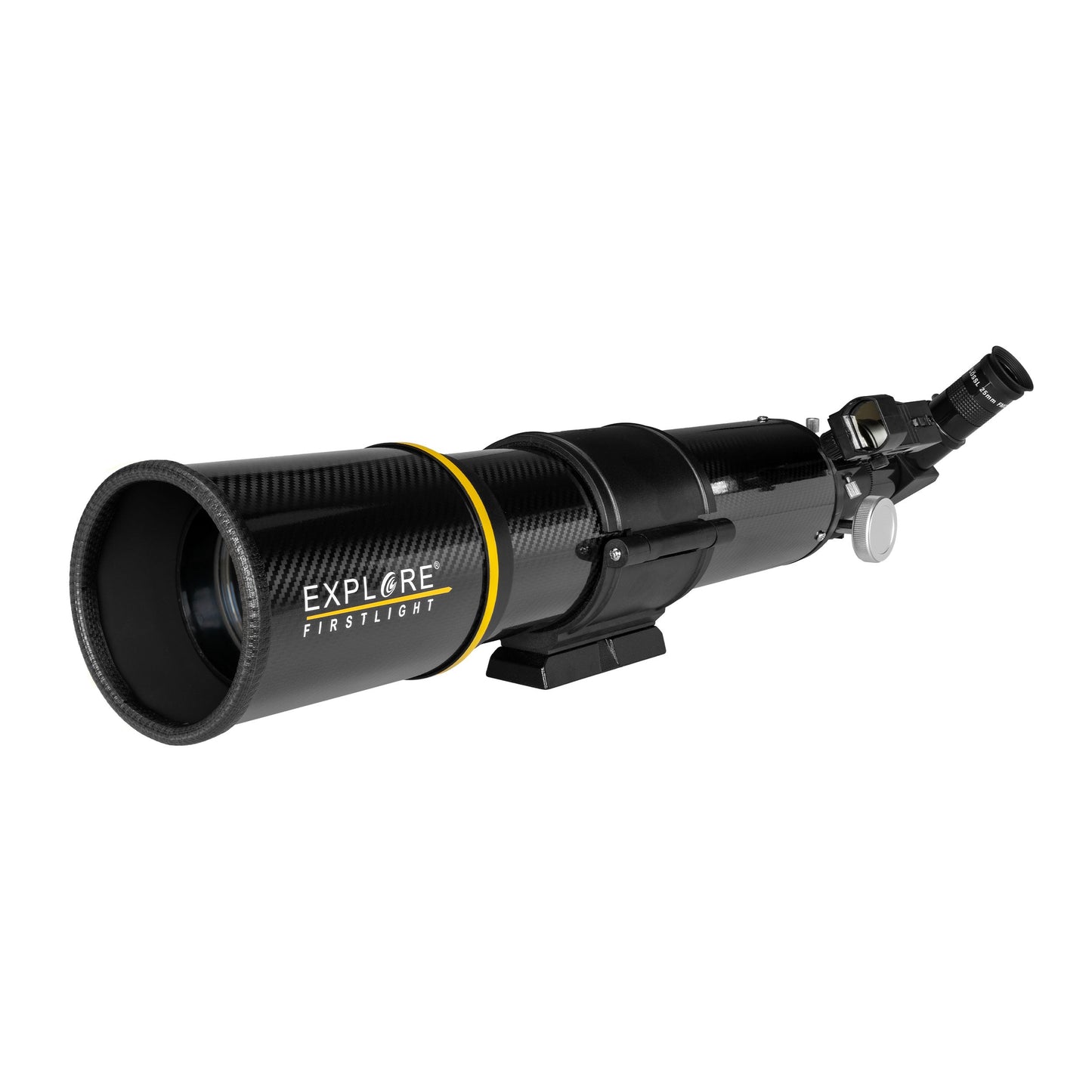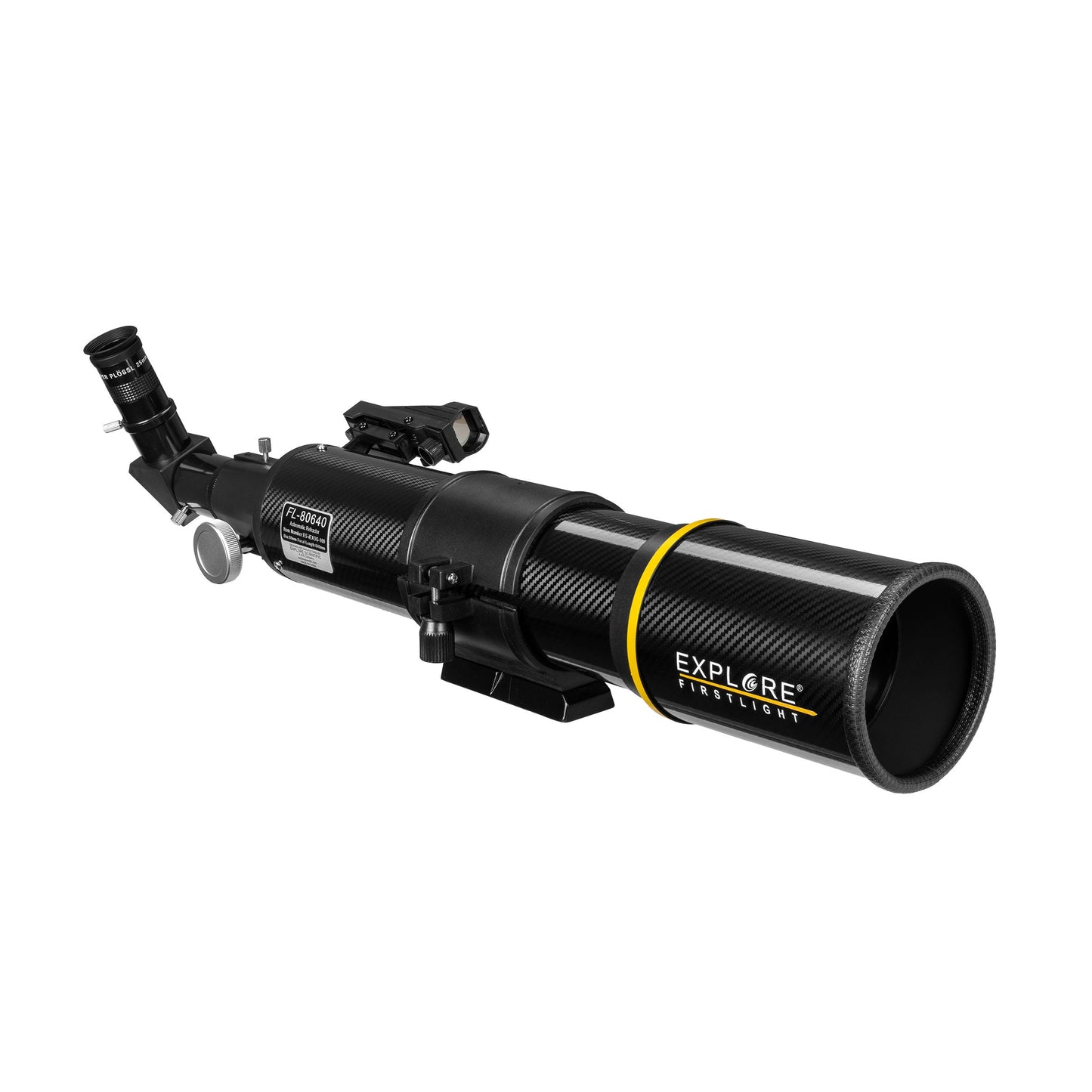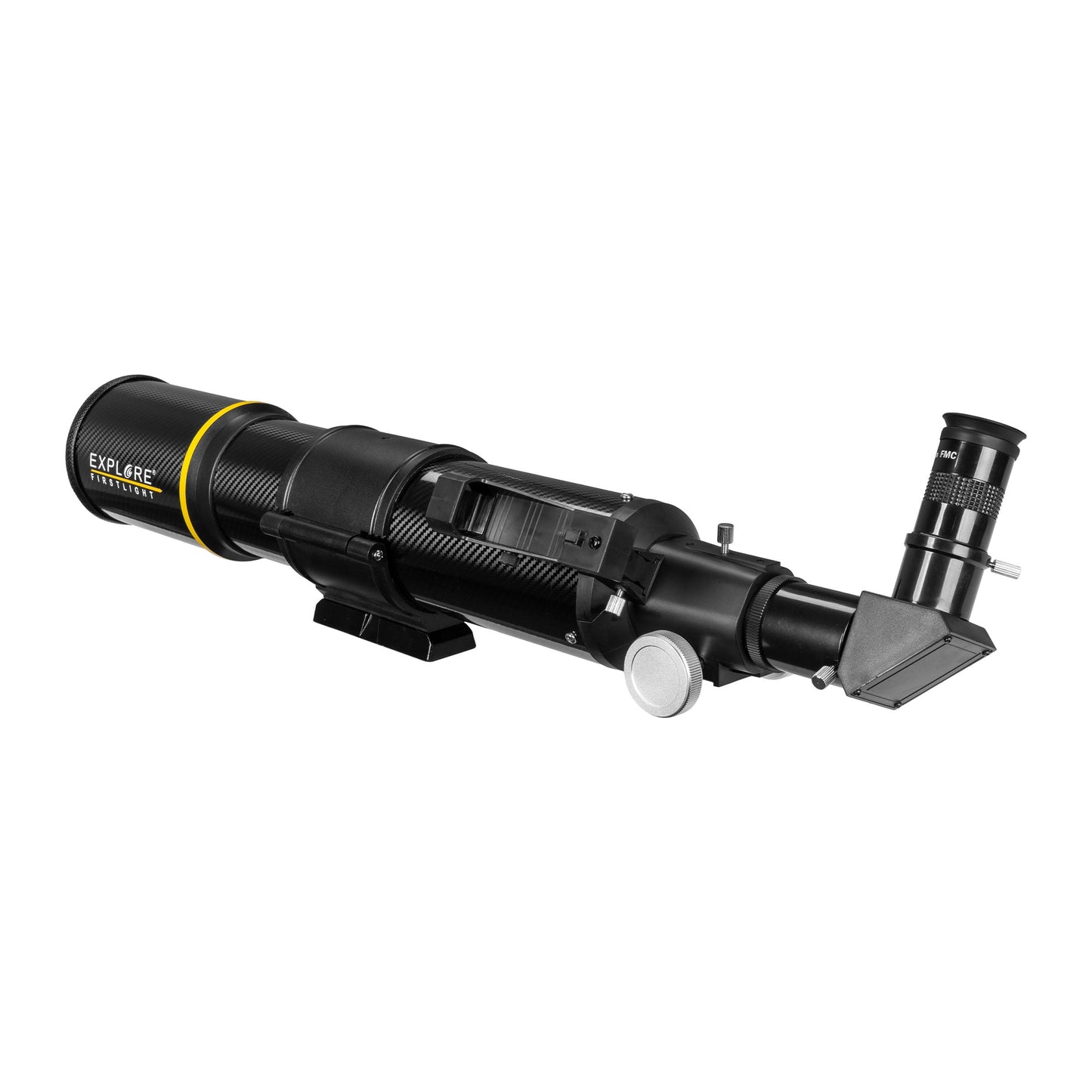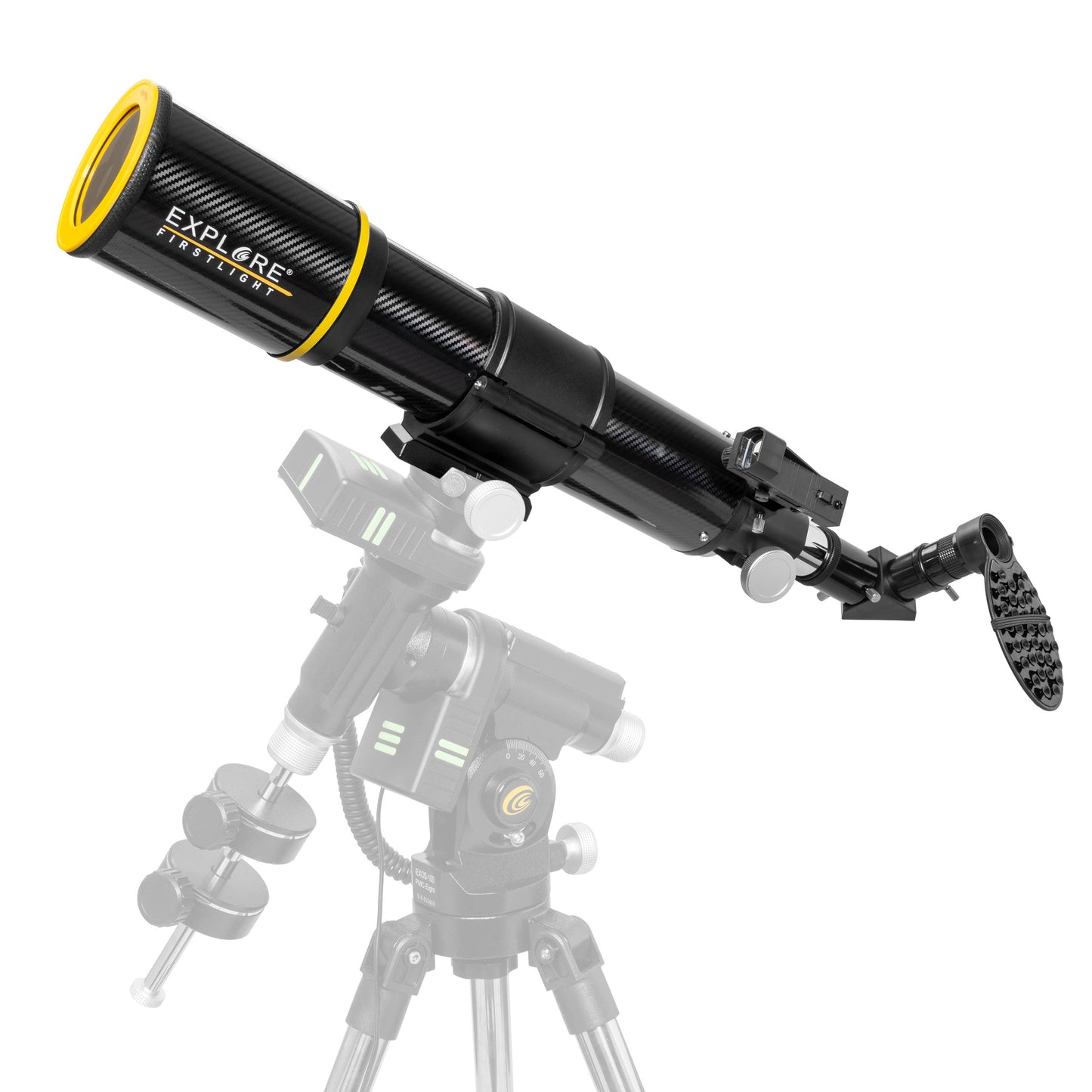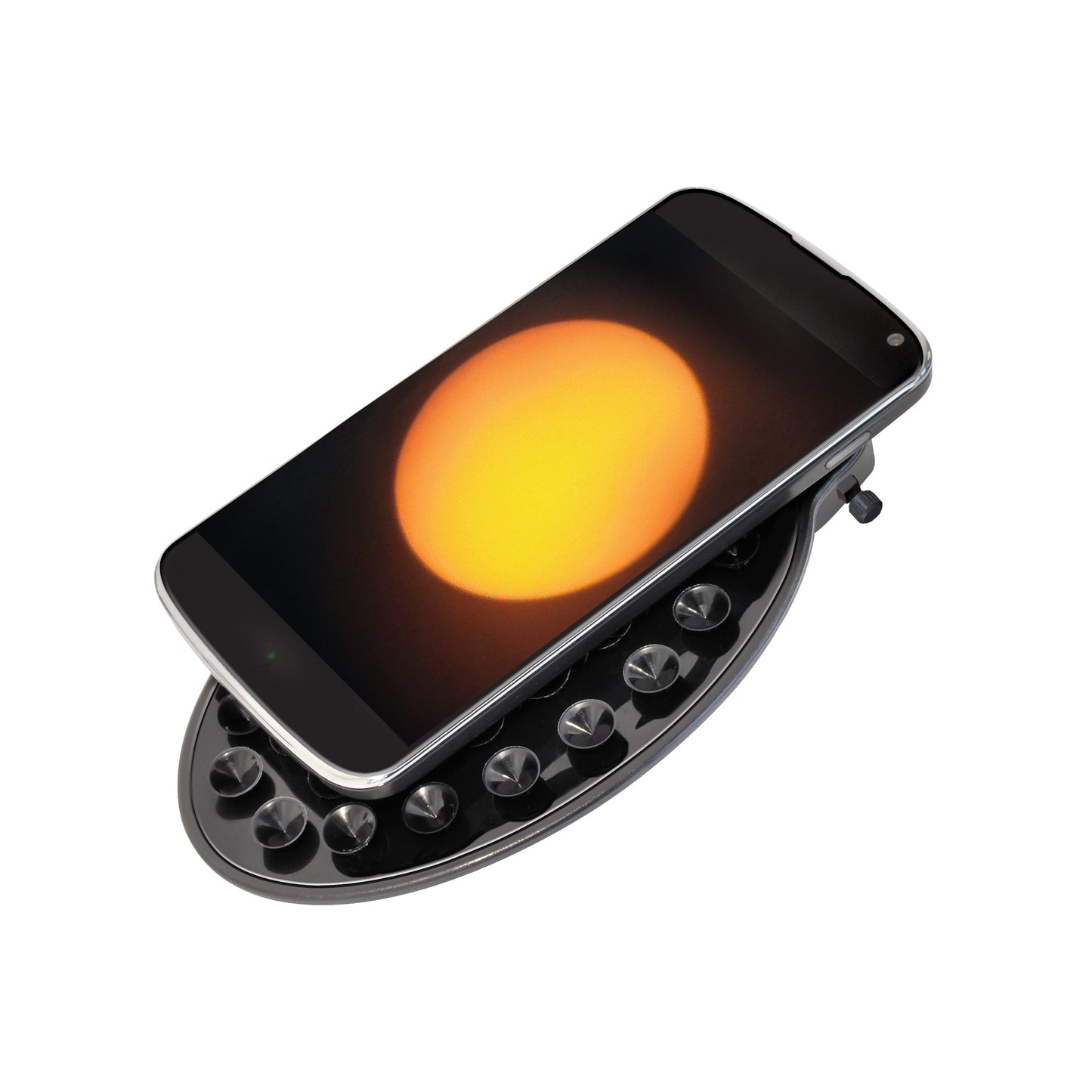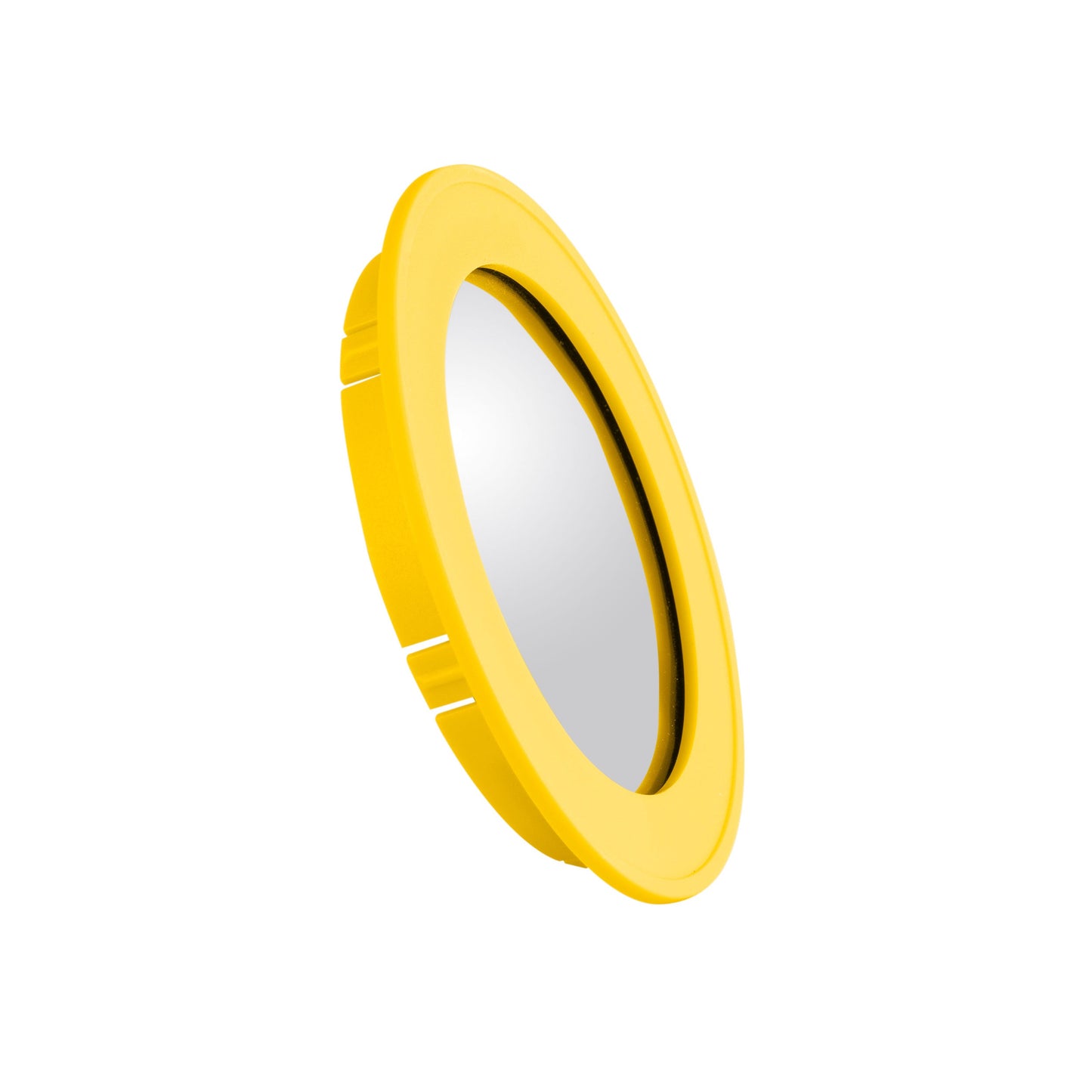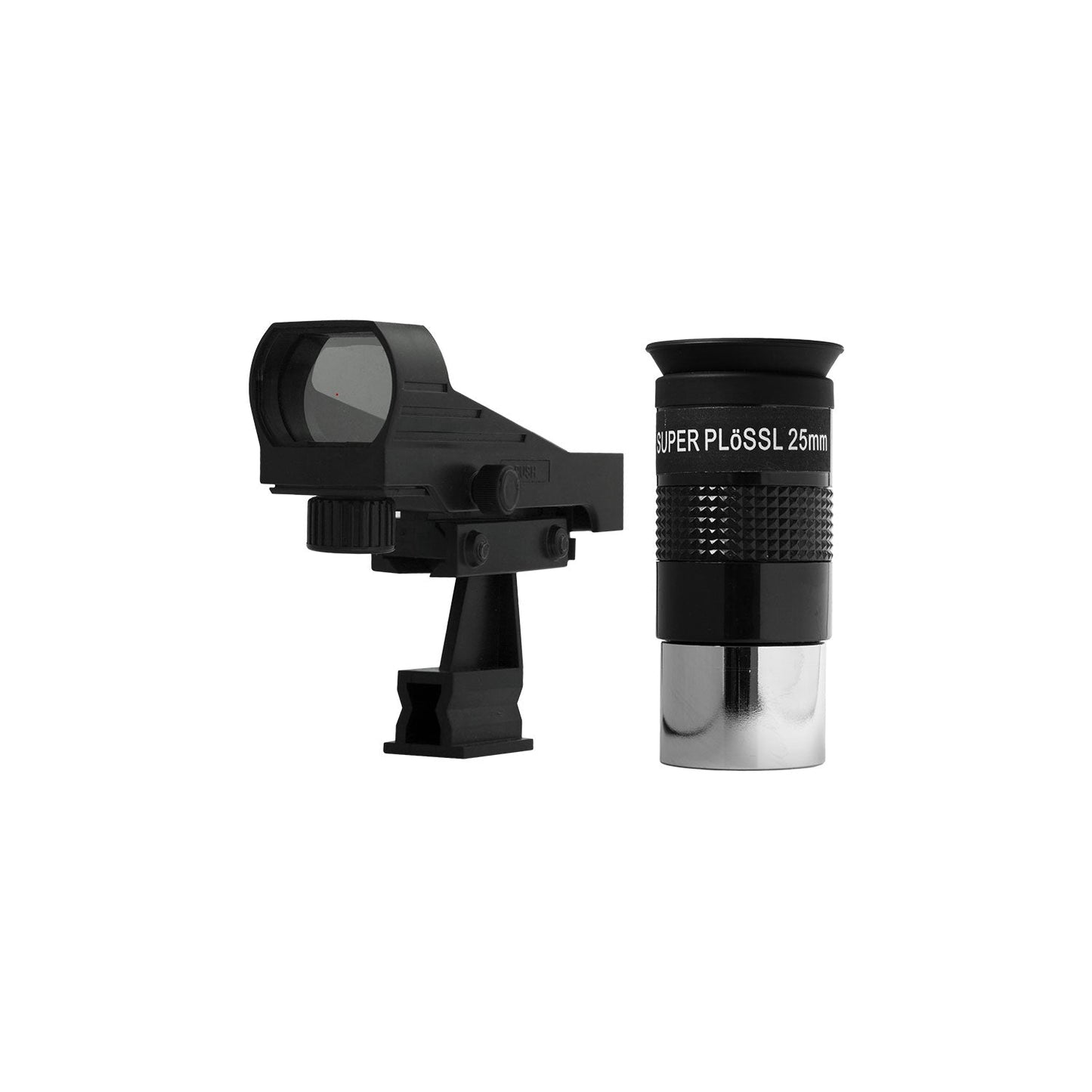Explore FirstLight 80mm CF Telescope with Solar Filter
Explore FirstLight 80mm CF Telescope with Solar Filter
Couldn't load pickup availability
For delivery before the April 8th total solar eclipse, choose the appropriate expedited shipping option at checkout
Features
- Optical tube assembly only ready for daytime solar or nighttime stellar use, for visual or astroimaging applications.
- 80mm aperture will reveal impressive lunar details ranging from craters to rilles, planetary features like Saturn’s ring structure or Jupiter’s cloud belts; and bright deep sky treasures like galaxies, nebulae and clusters.
- Telescope comes with an over-the-lens professional-grade solar filter, for studies of sunspot activity, observations of partial phases of an eclipse, or transits.
- Included adapter allows attachment of a DSLR using a standard T2-ring that is specific to your camera.
- Precision 25mm Plössl eyepiece, a 90° diagonal for more comfortable viewing and a red dot viewfinder to aid in object location.
- Built-in dew shield slows moisture build-up on the objective lens and reduces interference from stray light.
- Included adapter helps observers use their smart device to capture and share images.
- Rugged metal tube construction with black carbon fiber look.
- Telescope mounts to all of Explore Scientific mounts and other popular altazimuth and equatorial mounts.
NOTE: The Solar Filter material being used is the new advanced ‘Solarlite’ Film manufactured by world-famous Thousand Oaks Optical through years of research and development. ‘Solarlite’ a new solar film that has the optical quality of glass with the advantages of impregnated polymer -- perfect for the solar astrophotographer!
The solar film used with this telescope is the same material used in Explore Scientific Eclipse Glasses which is rated ISO12312–2, tested and approved by ICS Labs for Direct Observation of the Sun. In addition, Explore Scientific Eclipse Glasses are meant to be used by anyone from adult to children under 14 years of age, which requires stringent ASTM testing and compliancy. ASTM is a mandatory set of safety rules and regulations under ASTM F963 – Standard Consumer Safety Specification for addressing safety requirements for any object designed, manufactured or marketed for children under 14 years of age. In addition we are recognized by the American Astronomical Association as a supplier of safe eclipse glasses.
Description
Whether you're eager to explore the intricacies of the Sun, delve into the breathtaking beauty of Saturn's Ring Structure, document the dynamic changes in Mars' ice caps, or embark on a mesmerizing journey through the vastness of time and space to discover deep sky wonders, the versatile Explore FirstLight 80mm CF Optical Tube Assembly with Solar Filter provides an observation package tailored to your specific needs. This telescope comes equipped with essential tools for solar exploration, featuring a lightweight telescope, a professional-grade over-the-lens solar filter, a smartphone camera adapter, eyepiece, and a fully-adjustable red dot viewfinder.
The FirstLight AR80mm showcases a 640mm focal length, f/8 telescope with a precision fully-coated optical Crown-and-Flint main objective lens. Notable features include an oversize 40mm draw tube focuser for optimal field illumination, especially for smartphone astroimaging. The package also includes a Solar Filter, a 1.25" O.D. 90° Diagonal, a 1.25" O.D. 4-element fully-coated 25mm Plossl eyepiece (delivering 25.6 X; 1.95 Deg True FOV), an adapter to connect a DSLR using a T2 ring, a Red-dot Finder, and a Smartphone Camera adapter.
This optical tube assembly is perfect for solar imaging, and it is small and lightweight enough to use for eclipse travel. This is also a great candidate for those looking for a high-resolution guide scope.
Specs
Smartphone Adapter for Imaging
1.25-inch O.D. 4-Element Fully Coated 25 mm Plössl Eyepiece
Fully Adjustable Red Dot Viewfinder
Downloadable Planetarium Software
Warranty
Limited USA One Year Warranty. Click Here to register.
Recommended Products:
CA Residents: Prop 65 WARNING(S)
Share
